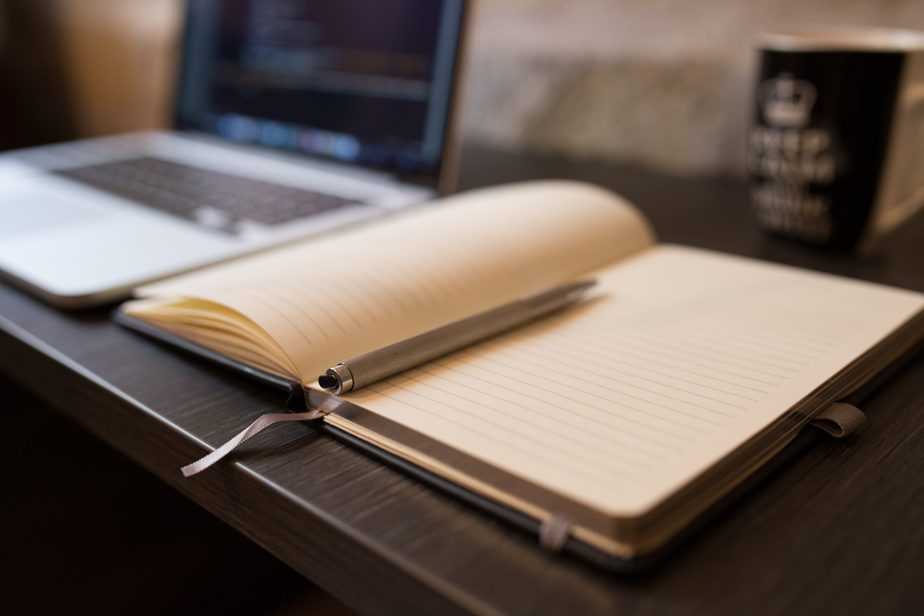WBP Writer’s Workshop & Rumble: Poetry and Punctuation
by TWJ executive editor and workshop presenter, Jessica Weible
The Writer’s Workshops are an opportunity for writers to come together and share insight into a specific technical skill, method or philosophical idea related to writing. Our intention is not to position any one person as an expert on writing, but to instead give an opportunity for writers to learn from one another.
Punctuation & Poetry was a session that I facilitated in our first workshop. Several poets who I worked with through the Writer’s Block Party meetings and with the Journal had asked me to look at their poems and edit punctuation errors, or add punctuation to it completely. I realized that, for many poets, the lack of punctuation is not necessarily a creative choice. I wondered, how might punctuation change the tone, meaning and effect of their work if they knew how to use it?
What I wanted to accomplish is to help poets make deliberate choices when it comes to punctuation. In our brief session, I provided them with a punctuation reference handout and lead them through a few samples of work to see how poets have used punctuation to achieve their purpose.
Some poets adhere to strict rules of grammar and punctuation to achieve their purpose:
Aunt Jennifer’s Tigers by Adrienne Rich
Aunt Jennifer’s tigers prance across a screen,
Bright topaz denizens of a world of green.
They do not fear the men beneath the tree;
They pace in sleek chivalric certainty.
Aunt Jennifer’s finger fluttering through her wool
Find even the ivory needle hard to pull.
The massive weight of Uncle’s wedding band
Sits heavily upon Aunt Jennifer’s hand.
When Aunt is dead, her terrified hands will lie
Still ringed with ordeals she was mastered by.
The tigers in the panel that she made
Will go on prancing, proud and unafraid.
What is the effect?
Some poets willfully ignore the rules of grammar and punctuation to achieve their purpose:
anyone lived in a pretty how town
By ee cummings
anyone lived in a pretty how town
(with up so floating many bells down)
spring summer autumn winter
he sang his didn’t he danced his did.
Women and men (both little and small)
cared for anyone not at all
they sowed their isn’t they reaped their same
sun moon stars rain
children guessed (but only a few
and down they forgot as up they grew
autumn winter spring summer)
that noone loved him more by more
when by now and tree by leaf
she laughed his joy she cried his grief
bird by snow and stir by still
anyone’s any was all to her
someones married their everyones
laughed their cryings and did their dance
(sleep wake hope and then)they
said their nevers they slept their dream
stars rain sun moon
(and only the snow can begin to explain
how children are apt to forget to remember
with up so floating many bells down)
one day anyone died i guess
(and noone stooped to kiss his face)
busy folk buried them side by side
little by little and was by was
all by all and deep by deep
and more by more they dream their sleep
noone and anyone earth by april
with by spirit and if by yes.
Women and men (both dong and ding)
summer autumn winter spring
reaped their sowing and went their came
sun moon stars rain
We read the above excerpts and then discussed, what is the effect of each?
Some noted that the first poem’s use of punctuation added to its readability. It was clear, easy to follow and we knew exactly when one line ended and another should begin. When we read a poem, we don’t read to the end of each line and pause (necessarily) but instead follow the punctuation to signal our pauses and stops.
Other noted that the second poem was more “free-flowing” which challenged the reader to search for those pauses and breaks, therefore prompting the reader to do more work in search of the poem’s meaning. The lack of capitalization also contributed to the poem’s tone, giving it a sense of openness and impermanence.
Next, we looked over the reference handout.
I emphasized the importance of knowing the rules of punctuation in order to break them.
(Cont.)
Then, we looked at a handout that showed some of the ways that punctuation can impact the tone of the work. Poems with a lot of dashes can create a sense of urgency, ro a disjointed experience. Poems with a lot of question marks can create a sense of doubt or exploration.
Lastly, we looked at the poem The Bells by Edgar Allan Poe and analyzed its use of punctuation.
We noted that the use of exclamations seemed to create the feeling of bells ringing or gonging, as well as the repetition of the word bells with the comma between each word to pause as a bell would when it gongs.
The Bells
Edgar Allan Poe, 1809 – 1849
I.
Hear the sledges with the bells—
Silver bells!
What a world of merriment their melody foretells!
How they tinkle, tinkle, tinkle,
In the icy air of night!
While the stars that oversprinkle
All the heavens, seem to twinkle
With a crystalline delight;
Keeping time, time, time,
In a sort of Runic rhyme,
To the tintinabulation that so musically wells
From the bells, bells, bells, bells,
Bells, bells, bells—
From the jingling and the tinkling of the bells.
II.
Hear the mellow wedding bells,
Golden bells!
What a world of happiness their harmony foretells!
Through the balmy air of night
How they ring out their delight!
From the molten-golden notes,
And all in tune,
What a liquid ditty floats
To the turtle-dove that listens, while she gloats
On the moon!
Oh, from out the sounding cells,
What a gush of euphony voluminously wells!
How it swells!
How it dwells
On the Future! how it tells
Of the rapture that impels
To the swinging and the ringing
Of the bells, bells, bells,
Of the bells, bells, bells, bells,
Bells, bells, bells—
To the rhyming and the chiming of the bells!
III.
Hear the loud alarum bells—
Brazen bells!
What tale of terror, now, their turbulency tells!
In the startled ear of night
How they scream out their affright!
Too much horrified to speak,
They can only shriek, shriek,
Out of tune,
In a clamorous appealing to the mercy of the fire,
In a mad expostulation with the deaf and frantic fire,
Leaping higher, higher, higher,
With a desperate desire,
And a resolute endeavor
Now—now to sit or never,
By the side of the pale-faced moon.
Oh, the bells, bells, bells!
What a tale their terror tells
Of Despair!
How they clang, and clash, and roar!
What a horror they outpour
On the bosom of the palpitating air!
Yet the ear it fully knows,
By the twanging,
And the clanging,
How the danger ebbs and flows;
Yet the ear distinctly tells,
In the jangling,
And the wrangling.
How the danger sinks and swells,
By the sinking or the swelling in the anger of the bells—
Of the bells—
Of the bells, bells, bells, bells,
Bells, bells, bells—
In the clamor and the clangor of the bells!
IV.
Hear the tolling of the bells—
Iron bells!
What a world of solemn thought their monody compels!
In the silence of the night,
How we shiver with affright
At the melancholy menace of their tone!
For every sound that floats
From the rust within their throats
Is a groan.
And the people—ah, the people—
They that dwell up in the steeple,
All alone,
And who tolling, tolling, tolling,
In that muffled monotone,
Feel a glory in so rolling
On the human heart a stone—
They are neither man nor woman—
They are neither brute nor human—
They are Ghouls:
And their king it is who tolls;
And he rolls, rolls, rolls,
Rolls
A pæan from the bells!
And his merry bosom swells
With the pæan of the bells!
And he dances, and he yells;
Keeping time, time, time,
In a sort of Runic rhyme,
To the pæan of the bells—
Of the bells:
Keeping time, time, time,
In a sort of Runic rhyme,
To the throbbing of the bells—
Of the bells, bells, bells—
To the sobbing of the bells;
Keeping time, time, time,
As he knells, knells, knells,
In a happy Runic rhyme,
To the rolling of the bells—
Of the bells, bells, bells—
To the tolling of the bells,
Of the bells, bells, bells, bells—
Bells, bells, bells—
To the moaning and the groaning of the bells.
I left each member of the session with an opportunity to take a poem that he or she had already written and add punctuation to it in a way that might change or enhance the tone. I encouraged participants to note the differences in the work with even slight alterations.
YOUR TURN
Take a poem that you have already written and brought with you today. (Or write a poem that pops into your head!) Give it a different personality (tone). Frenetic and hurried, joyful and exuberant, calm and blissful? Infuse the tone by changing the punctuation of the poem (or adding punctuation to it).
I hope this session gave all of our poets a chance to think more critically about these choices that often seem insignificant. Punctuation is often overlooked, though I would argue that the impact of a poem is not just enhanced by the words, but the way punctuation (or lack thereof) frames those words.





Thank you for all of this